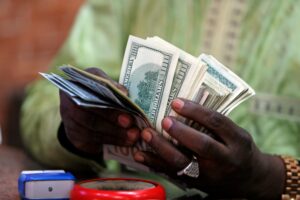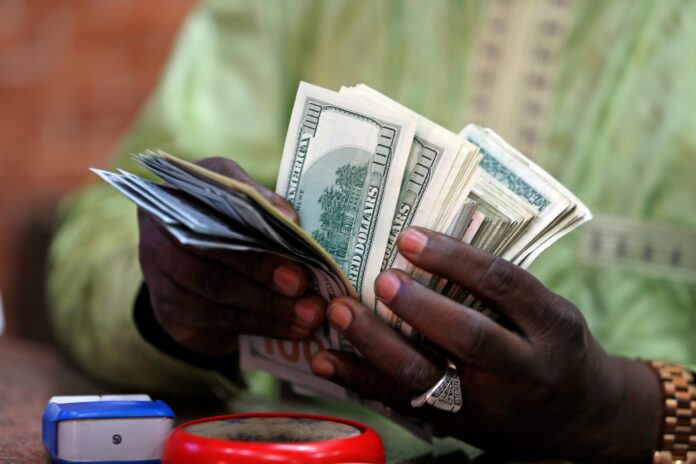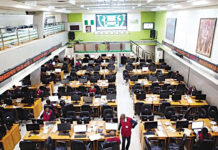Naira has continued to depreciate against the US dollar in the foreign exchange market, with the trend persisting on Thursday.

The latest data from the FMDQ Securities Exchange shows that the naira slightly weakened to N1,586.04 per dollar on Thursday, compared to N1,582.09 exchanged on the previous day. This represents a marginal decline of N3.95.
The struggle of the naira is further exacerbated by a significant drop in foreign exchange transaction turnover. On Thursday, the turnover fell by a staggering 54 percent, from $201 million on Wednesday to just $92 million.
This decline in trading activity suggests a potential tightening of foreign currency supply, which could further strain the local currency’s value against the dollar.
The situation is not limited to the official market, as the parallel market, often referred to as the “black market,” also saw the naira return to the N1600 per dollar mark on Thursday, after trading at N1598 the previous day. This marks two consecutive depreciations of the naira against the dollar.
The ongoing depreciation of the naira is closely tied to the Central Bank of Nigeria’s (CBN) retail Dutch Auction System, a mechanism used to allocate foreign exchange to authorized dealers.
Furthermore, the country’s external reserves have also taken a dip, dropping to $36.620 billion as of August 12, 2024, from $36.872 billion recorded on August 7, 2024, according to the CBN’s data. This decline in reserves could further exacerbate the challenges faced by the naira.
The weakening of the naira has far-reaching implications for the Nigerian economy. It can lead to higher import costs, increased inflation, and reduced purchasing power for consumers. Additionally, it can make it more expensive for businesses to access foreign currency, which is crucial for importing raw materials, machinery, and other essential goods.
Experts have called for a comprehensive strategy to address the underlying issues driving the naira’s depreciation. This may include measures to boost foreign exchange inflows, diversify the economy away from its heavy reliance on oil exports, and implement policies that enhance the competitiveness of Nigerian exports.
The CBN, as the primary custodian of the country’s monetary policy, will likely face increasing pressure to intervene and stabilize the exchange rate. However, any such intervention must be balanced with broader economic reforms to ensure sustainable growth and development.
As the naira continues to struggle against the dollar, the Nigerian government and relevant authorities must act decisively to address the root causes of this challenge and implement measures that can restore confidence in the local currency. The stability of the naira is crucial for the overall economic well-being of the country and its citizens.




